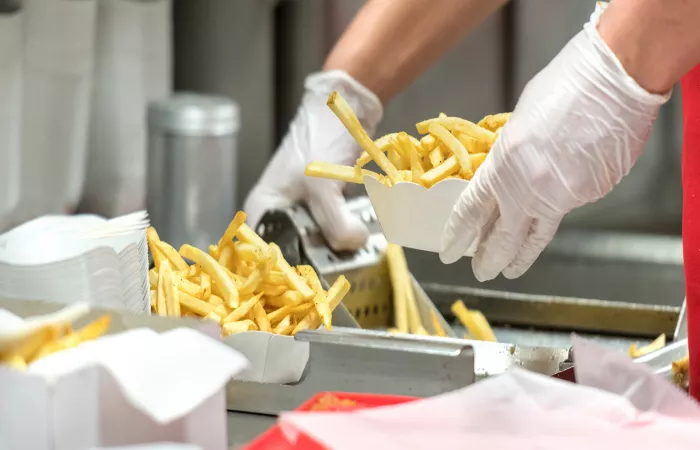Drinks That Pack on the Pounds: Weight Gain from Liquid Calories
In the modern world, where convenience often trumps nutritional value, the consumption of high-calorie beverages has become increasingly common. While many people are aware of the impact of sugary sodas on weight gain, the issue goes beyond just carbonated drinks. A wide range of beverages, including juices, energy drinks, and specialty coffees, can contribute to rapid weight gain when consumed in excess. Understanding the role of liquid calories in the weight gain process is crucial for making informed dietary choices and maintaining a healthy lifestyle.
The Calorie Conundrum: Unveiling the Hidden Calories in Beverages
One of the main culprits behind weight gain from beverages is their high calorie content, often disguised by their liquid form. Unlike solid foods, which can trigger feelings of fullness and satiety, liquid calories are less filling and can be consumed in large quantities without providing a sense of satisfaction. This makes it easy to consume excess calories without even realizing it, leading to weight gain over time.
One of the primary contributors to liquid calories is added sugars, which are commonly found in sugary drinks such as sodas, fruit punches, and sweetened teas. These added sugars not only contribute to weight gain but also increase the risk of developing obesity-related conditions such as type 2 diabetes and cardiovascular disease. Furthermore, sugary beverages provide little to no nutritional value, making them empty calories that offer no benefit to overall health.
Beyond Sugary Sodas: Exploring Other Weight-Gain Culprits
While sugary sodas are often the first beverage that comes to mind when discussing weight gain, there are numerous other drinks that can contribute to excess calorie consumption. For example, fruit juices may seem like a healthy choice, but they are often high in natural sugars and calories, especially when consumed in large quantities. Similarly, energy drinks and sports drinks can be loaded with added sugars and artificial ingredients, leading to unwanted weight gain.
Specialty coffee drinks, such as lattes, mochas, and frappuccinos, are another hidden source of liquid calories. These indulgent beverages often contain high amounts of sugar, flavored syrups, and whipped cream, turning a simple cup of coffee into a calorie-laden treat. Alcoholic beverages, such as cocktails and mixed drinks, can also contribute to weight gain due to their high sugar and calorie content.
The Science of Liquid Calories: Understanding Metabolic Effects
Beyond their impact on calorie intake, liquid beverages can also affect metabolism and hunger hormones in ways that promote weight gain. Research has shown that liquid calories are less satiating than solid foods, leading to increased overall calorie consumption. Additionally, beverages high in added sugars can cause rapid spikes and crashes in blood sugar levels, leading to increased hunger and cravings for more sugary foods.
Furthermore, the body metabolizes liquid calories differently than solid calories, potentially leading to greater fat storage and weight gain. When consumed in liquid form, calories are absorbed more quickly into the bloodstream, bypassing some of the body’s natural satiety mechanisms. This can lead to overconsumption and subsequent weight gain, especially when combined with a diet high in refined carbohydrates and processed foods.
Navigating the Beverage Landscape: Making Informed Choices
While the abundance of high-calorie beverages in today’s food environment may seem daunting, there are steps that individuals can take to make healthier choices and avoid weight gain. First and foremost, reducing or eliminating the consumption of sugary drinks is essential for managing calorie intake and promoting weight loss or maintenance.
Instead of reaching for sugary sodas or fruit juices, opt for water, sparkling water, or unsweetened tea as healthier alternatives. These beverages are calorie-free and hydrating, making them ideal choices for quenching thirst without adding extra calories. When craving a specialty coffee or alcoholic beverage, choose smaller sizes and opt for options with less added sugar and fewer calories.
Additionally, paying attention to portion sizes and reading nutrition labels can help individuals make informed choices about their beverage consumption. Many packaged beverages contain multiple servings per container, so be mindful of how much you are actually consuming and adjust portion sizes accordingly. Choosing beverages with little to no added sugars and opting for whole fruits over fruit juices can also help reduce calorie intake and promote weight loss.
Conclusion
In conclusion, the consumption of high-calorie beverages is a significant contributor to weight gain and obesity in today’s society. From sugary sodas to specialty coffee drinks, a wide range of beverages can pack on the pounds when consumed in excess. Understanding the role of liquid calories in the weight gain process and making informed choices about beverage consumption is essential for maintaining a healthy weight and overall well-being. By prioritizing water and other low-calorie beverages, individuals can reduce their calorie intake, promote weight loss, and improve their overall health.

